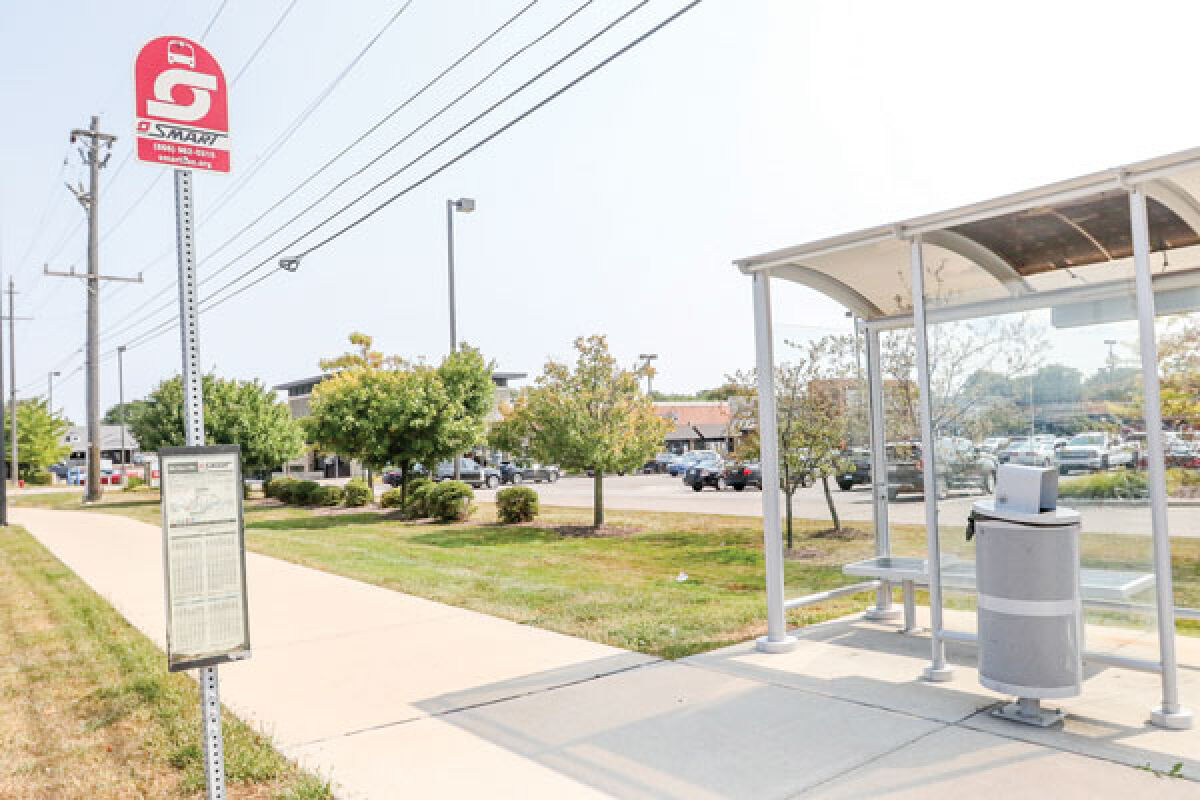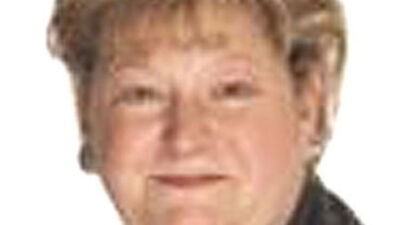GREATER WEST BLOOMFIELD — Aside from voting for candidates running for elected offices, on Nov. 8, Oakland County residents will also decide whether to approve a new millage and opt in to an agreement with the Suburban Mobility Authority for Regional Transportation.
Currently, each community in Oakland County can decide whether it wants to opt in or opt out of services provided by SMART.
If the ballot measure passes, it would mean there would be an opt-in agreement as a county, as opposed to a decision that is made by cities and townships on a community-by-community basis.
The countywide measure would ask residents to pay in to a 0.95 mill collection, which is 95 cents for every $1,000 of taxable value of a home, for 10 years. Expansion would include additional bus routes, the growth of the SMART Flex service, an orderable ride-share-style service that is currently in a testing stage in certain communities, and possibly more frequent service.
Locally, Keego Harbor, Orchard Lake and Sylvan Lake currently opt out of services provided by SMART, while West Bloomfield Township has chosen to opt in.
Sylvan Lake Mayor Ben Clarke estimated that it was approximately 15 years ago that the city decided to opt out of using SMART.
“Sylvan residents weren’t using it,” Clarke said. “I think the main concerns were low ridership — no one’s really using our stops.”
Keego Harbor Mayor John Fletcher cited a similar rationale for Keego’s decision.
“We have been an opt-out community for at least a decade,” Fletcher said. “At one point in time, I think we opted in, and at that time, we could only figure we had two riders on a regular basis. … As a whole city, we were supplementing that, so we began to be an opt-out community.”
Orchard Lake Mayor Norm Finkelstein said the city has never been an opt-in community.
“We just have never identified a need among our citizens,” Finkelstein said. “Nobody has come forward, ever, to say they would like to have it, with one exception. A (year) or two ago, we had a resident who had a family member who was unable to get other transportation and wanted to have, like, a van service take him to work. But in order to do that, we would have had to join SMART and tax everybody in our city 1 mill, and that just was not an option.”
Bloomfield Hills is one of the communities that chose to opt out of the SMART millage.
The millage was discussed at a meeting in June 2015. At the meeting prior, then-Commissioner Patricia Hardy suggested inviting the bus service provider to the June meeting to share information on their services.
Then-Commissioner Sarah McClure shared at the meeting that she thought Bloomfield Hills was facing other priorities that resources should be directed to. She referenced a survey that went out to residents for the city’s master plan in 2012 which showed that residents did not have a strong interest in public transportation at the time.
There were commissioners on both sides of this argument in 2015. The board voted 3-2 against adding a request for a millage to support the bus service.
Hardy and then-Mayor Michael Dul were in support of SMART and believed millennials and seniors might be interested in public transportation.
Then-Commissioner Stuart Sherr was also against a SMART tax because he believed the cost greatly outweighed the benefits.
West Bloomfield Supervisor Steven Kaplan explained the township’s reasoning for choosing to be an opt-in community.
“West Bloomfield consists of (an) approximately 23% senior citizen population, and of that number, a substantial quantity of residents do not drive,” Kaplan said. “Other communities might have good reasons for opting out … but it is essential for our seniors to have mobility.”
As for the millage proposal in November, Fletcher is in favor of keeping it as is.
“I’ve always believed in the individual community opt-in or opt-out, because (at) Springfield Township, you don’t get bus service there; Clarkston — you don’t get bus service out in these rural parts. … They want a countywide referendum on this because most of your participating communities are in southern Oakland County. … Those participating communities, they absolutely can out-vote the populous of northern Oakland County, who do not participate.”
Fletcher shared another reason for why he thinks it should be a community decision, as opposed to Oakland County deciding as a whole.
“The closer you get to the city government, the more responsive your local government is, and you can hold them more accountable,” he said. “Who’s better to decide if this city needs this than the residents of the city and their local leaders? … I really believe it’s a disservice, not letting individual communities choose whether they will opt in or they will opt out. Back when Keego opted out, I believe that we had gotten feedback that we had two riders out of 3,000 people. … So do 3,000 people pay taxes for two people to ride?”
Kaplan also weighed in on the proposal.
“If it appears on every ballot in the county, we think that West Bloomfield residents will support it,” he said. “If another community does not have it … they would have good reasons. Each community decides what is best for itself.”
Kaplan stated that West Bloomfield’s transportation millage is 1 mill, which amounts to $169,485 for the current year, with a four-year millage expiring this year.
According to an email from Kaplan, the township had some questions about the millage proposal and learned that the millage would result in $66 million in revenue, with some of the breakdown including $2 million going to the North Oakland Transportation Authority, $1 million to the Older Persons’ Commission and $2 million to the Western Oakland Transportation Authority.
According to the North Oakland Transportation Authority’s website, it is a transportation service that serves seniors, disabled individuals and low-income residents of Oxford, Orion and Addison townships and the villages of Oxford, Orion and Leonard.
According to the Older Persons’ Commission website, for individuals 50 and older residing in Rochester, Rochester Hills and Oakland Township, it provides services such as Meals on Wheels, transportation and adult day services for those requiring daily assistance.
The Western Oakland Transportation Authority states that it is a door-to-door, “demand response,” paratransit transportation service for seniors 55 and older and disabled adults 18 and older in Highland Township, Walled Lake, Waterford and White Lake, with 12 lift-equipped vehicles.
According to an email from Kaplan, the township also learned that, if the millage does not pass, “Beginning January 1 and ending June 30, 2023 — ALL SMART services will cease to exist in Oakland County. … SMART will take back all vehicles that are titled to SMART and used by local community programs. … (and) the vehicles will be auctioned off and the money will be sent back to the (Federal Transit Administration). … This is a law, set by the FTA, that SMART has to follow.”
Finkelstein said that Orchard Lake is “firmly opposed” to the millage proposal.
“I think it’s a terrible theft of our funds from all these communities,” he said. “I believe there’s only 25 out of 62 communities in the county, and that number may not be exact, that have opted in, and many of them are in the southern part of the county. … Going from 1 mill … to 0.95 for everybody with no opt-out, well, that’s just playing games with the money. They’re telling the other communities they’ll save money (because) they’ll be taxed at a lower amount, but it’s just not fair to any of us that have no need to be in a system like that.”
Finkelstein expanded on his reasoning for being opposed to the millage.
“They can’t even tell us what the plan is if they were to get the money, if it were to pass,” he said. “They don’t know what the plan is to spend the money. They say, ‘Let’s get the money, then we’ll figure out the plan.’ We don’t think it will cover places like Orchard Lake very well, even if we needed it, which we don’t.”
From Clarke’s perspective, having a SMART bus system could help provide a remedy for a problem that local business owners have been running into.
“I have observed businesses on Orchard Lake have a real struggle finding staff for low-wage jobs, so I think to get that sort of workforce, we need better transportation,” he said. “It’s causing our businesses to shutter, due to a lack of employees. … Our ridership may have been low in the city when they looked at it 15 years ago, but I think there’s been a ripple effect of having difficulty getting employees to work, at say, fast-food restaurants.”
Clarke thinks there is a reason why there isn’t an abundance of Sylvan Lake residents applying for those kinds of jobs.
“I completely understand how you wouldn’t have any staff because we have an aging populace; a low amount of young people in our neighborhood, in our city — we’re only 1,750 people, and the statistics are what they are, the census is what it is — it just keeps getting older and older, so there’s less families. Those would be the kind of people that would take those jobs,” Clarke said. “Typically, maybe 30 years ago, it would’ve been teenagers; they’re not doing that anymore, so you have to get employees from somewhere else, and there’s no way for them to get here. When you’re talking about just the basic economics of it, to have a car, pay for insurance, do all that, it’s not really viable to work a $12-an-hour job, so you would need some form of transportation.”
Despite that perspective, Clarke does have a concern.
“I have a 14-year-old son, and I would be comfortable with him using, for instance, Denver’s transportation infrastructure, but I would be a little more hesitant with a SMART bus system,” he said. “There’s a lack of riders from the area. … You feel safety in numbers; a lot of the time, you don’t see a lot of people on SMART bus systems.” Since Keego opted out of using SMART’s bus services, Fletcher doesn’t recall any residents requesting to have it reimplemented. He thinks the demand in northern Oakland County is “very limited.”
“The feeling I get when I talk to other people in northern Oakland County is that everything is so much more spread out, that there’s not gonna be the ridership,” Fletcher said. “Maybe that would change if they looked at more of an individualized-type remedy on some of this, but I don’t know.”
Fletcher shared his take as to a potential alternative to the current SMART bus system.
“I personally think it’s sad when you see a senior citizen, whether it’s a man or woman, sitting at a bus stop when it’s snowing, it’s raining — a mother with her kids trying to haul groceries and her kids sitting (at) a bus stop,” he said. “I think to myself, ‘Are we making the best use of public monies? … Do we give people Uber credits, so that the senior citizen can be picked up at their home and taken to the grocery store, instead of trying to get to a bus stop? Are we really thinking outside the box?’ … I would love to see us really take a hard look at transportation in our region … where buses play less and less of a role.”
Oakland County Board of Commissioners Chair and District 19 Commissioner Dave Woodward said, “This proposal maintains all the current funding that is in place and replaces what is commonly referred to as the SMART millage at a lower rate.
“This proposal ultimately allows for an increase in destinations for transit across Oakland County to get to more job centers, health care and education opportunities that are not currently reached by transit services,” Woodward said.
“Before, you had the swiss cheese approach to transit where you had gaps in service, you had employment centers that were outside the scope and yet needed employees that maybe lived in an area that was part of that but could not get all the way to those destinations,” Woodward said.
Staff Writer Brendan Losinski contributed to this report.
 Publication select ▼
Publication select ▼






















